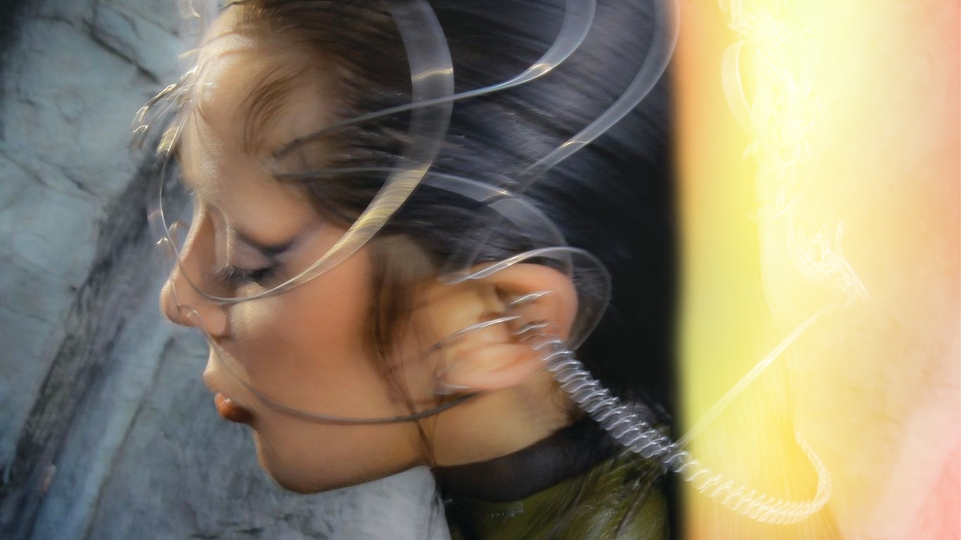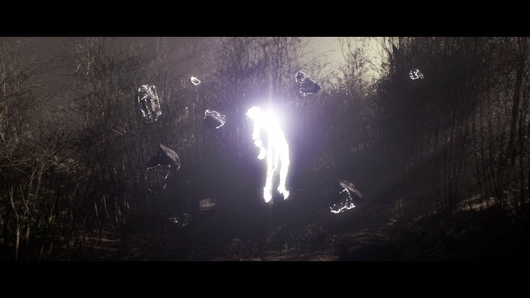Get to Know: Imer6ia

Get acquainted with Imer6ia, the artist producing music that is intense, melodic, and darkly dramatic for labels including lavibe, Rush Hour, Tremors, and The Games We Play
A clue to Laetitia Bech’s sound can be found in one of her early musical infatuations. Growing up in the southwest of France near the Atlantic, her early taste was shaped, as it was for most of us, by the music her parents favoured, mainly classical and rock. But when she got a bit older, she discovered the elegantly hazy dream-pop of the Cocteau Twins.
You could, if you liked, trace a line from the Cocteau Twins’ reverb-drenched sound to that of the music that Bech creates as Imer6ia. Her productions, much like the Cocteau Twins, are thick with atmosphere; they’re equally driven by a romantic passion, and imbued with a dreamland aura. But there, the similarities pretty much end: The Cocteaus’ output tends to be lilting and lighter than air, while Imer6ia’s material is dense, intense, and darkly dramatic. It’s also, as it happens, quite beautiful. She’s been releasing solo work and collaborations through imprints like Rush Hour, Tremors, and The Games We Play since 2018, culminating in her debut LP, ‘Translucid’ which was released on February 23rd via the lavibe label.
Bech, who now lives in Paris, makes music that falls into the slightly arcane category of wave music — the otherworldly style, arising in the early ’00s, edges up against elements of trap, witch house, vaporwave and more, yet exists in a universe of its own. When Bech discovered wave, she felt like she had found a home. “I had already been producing, but I hadn’t dropped anything,” she says. “Then I discovered this music, and I related to a lot of the vibe when it came to the OG wave music. In the beginning, it was in the style of Clams Casino merging with witchy, dark atmospheres and trap music. The OGs, they were pioneers who did it really well, and their music evoked something nostalgic that I loved.” She’s ambivalent about wave music’s later permutations, though. “By now, what we call wave music has changed a lot. Today’s is more cyber-ish and futuristic, and I don’t really like it.”
Despite her feelings about much of the music’s direction, Bech still enjoys being a member of the worldwide wave community — but like most artists who prefer to let the work speak for itself. she resists attempts to categorise it further. When asked how she would best describe her sound, she says: “I would say that my music is emotional, I would say it’s cinematographic, and it has a lot of melody — but also a lot of drums,” she adds. (She’s right about the drums — they tend to be on the formidably massive side.)
A bit later, she adds something a bit more concrete to this description by referencing an analogous style. “I was listening to music with a friend of mine, and he was like, ‘All the music you love is called body music.’ And I was like, ‘What’s body music?’ He says, ‘Electronic body music. EBM.’ So then I searched, and I think I kind of relate to that. It’s raucous, industrial, electronic, experimental, and very emotional.”
There’s a vast spaciousness running throughout her music, yet Bech favours a relatively stripped-down setup. “I mainly use Ableton Live, and I have the synthesiser here, which is my MIDI,” Bech, who also hosts a monthly show on Rinse France, explains. “I used to have more analog synthesisers, but then I learned to do my own sound synthesis, so I program a lot of sounds by myself, through Live itself or through plugins that I transform. And I have this guitar, but I really transform the sound with effects. And that is basically all.”
On ‘Translucid’, she worked closely with Cédric Steffens, the producer better known through his Canblaster nom de musique. The hookup was made at the suggestion of Brice Coudert, who runs lavibe — Bech hadn’t previously met Steffens, but she feels as though she’s found a kindred spirit. “We became friends very easily,” she says, “and discovered a lot of common things, like in music or in visual culture. I think it’s more than a collaboration for me because it gave birth to friendship, and I hope to do upcoming collaborations.”
She’ll have to squeeze those collabs into what sounds like a busy schedule — besides her work as Imer6ia, Bech also toils as a digital designer and stage designer, among her other creative activities. (The immersive video to lead single ‘Starships’ is her handiwork, for instance.) Allocating the time to make music can be a challenge.
“To be honest, it’s not an easy road, when you have your personal project — which is music — and a nine to five, or really a nine to nine,” she says. “You need to be really, really organised, The solution I found is also to separate everything and give time for everything. If I have very demanding work, I will focus on that and put the music a bit aside. If I have to focus on one video clip, like ‘Starships’, I will only do that. Music, I do it when I can, really.”
When asked about her next post-release steps, Bech gets a bit philosophical. “We all evolve as humans over time, and I know that my material will also evolve in the same way,” she muses. “I want to give space and time for that evolution. I have a lot of songs and a lot of material — I already have enough to think about a second album, even maybe a third album. But I don’t want to think that way. It’s more like, it’s a basis of material that is promised to evolve with experience.” Wherever that evolution takes her, lovers of hugely affecting music will surely follow.






